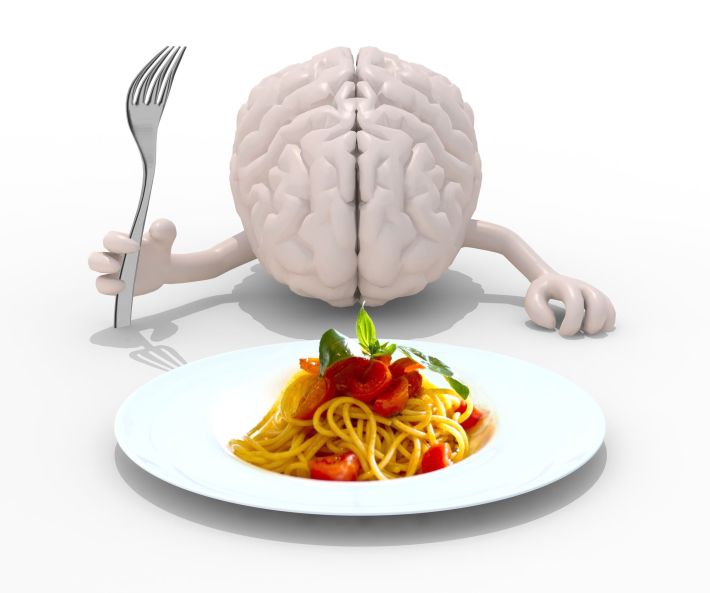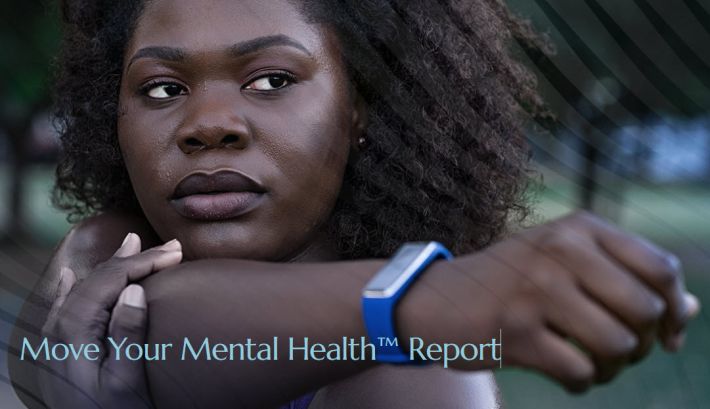Anxiety on Mental Health and Wellbeing
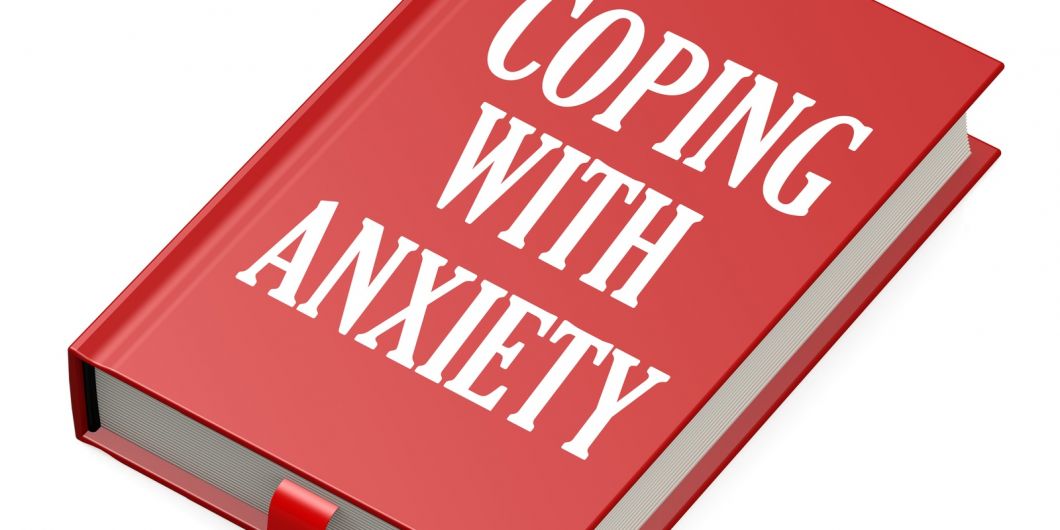
If you’re having trouble sleeping well or feeling anxious most days, you probably aren’t alone because over 40 million Americans yearly suffer from anxiety disorders.
Excessive worry has become common for many people today, and it affects their ability to sleep well, perform daily tasks, concentrate, or enjoy social interactions—and that’s not healthy!
More...
There’s an evolutionary reason behind anxiety. Anxiety is basically preparing our brains and bodies to escape potential danger, an evolutionary mechanism that has helped humans survive as long as they have. Anxiety, coupled with fear, is often necessary for a specific event.
For example, if we’re confronted with a lion, it may help us to run much faster than we would without any form of anxiety or dread. Parts of the brain are evolutionarily wired for our survival. Because of this, we sometimes still perceive many non-life-threatening cases as “life-or-death situations,” as if a sabre tooth tiger were chasing us down in the urban jungle. Furthermore, the brain’s emotional system is also hardwired to respond in an emotionally set way to life-and-death situations.
The amygdala is one part of the limbic system involved in emotion. It has been shown that when people are exposed to threatening stimuli (such as images or sounds), while their amygdala may be stimulated unconsciously, they experience fear.
What are some signs that your anxiety levels are too high?
With so much happening in our lives today, we tend to worry a lot. Worry can take many forms, including irrational fears, overthinking, and worrying too much about things that may never happen. Learning to manage these feelings and not let them control you is crucial.
It’s natural to feel occasional anxiety.
Some anxiety levels can be helpful, as they provide a “red flag” that something is meaningful in our lives and worth giving more awareness to. For example, mild anxiety about an upcoming exam can serve as a reminder that this event is ‘out there,’ and we can use that anxiety to our advantage by ensuring we study for the exam.
The effects of prolonged anxiety, however, can be detrimental to both our physical and mental health. If you experience the following signs and symptoms more often than not for at least a couple of weeks, you may be experiencing more anxiety than is healthy with significant changes in sleep and appetite, muscle tension, fatigue, difficulty concentrating, and frequent worrying and rumination.
If excessive worry negatively impacts your social activities, work, or relationships with others, you may have too high a stress level.
What daily habits can contribute to increased anxiety?
Our brains respond in different ways when they’re under stress (as opposed to when we’re relaxed), but having a sense of order and predictability can help us cope better. So, even if we can’t always control our anxiety, we can at least control the things that cause it.
Additionally, having a perfectionist mentality can increase anxiety levels. According to Psychology Today, some people may cause more anxiety by not prioritising their needs/desires and sometimes feeling that they need to do everything. Extreme perfectionism is believed to be motivated by the desire to avoid judgment or failure, and can contribute to anxiety and depression.
Prolonged stress may lead to health problems, so engaging in enjoyable daily activities is the first step towards mitigating its effects. Moreover, taking a regular break from work during the day is crucial to eating and drinking something healthy (such as a snack).
The difference between natural remedies for anxiety and medication

Pharmacology tells us that one-way anxiety can be treated with antidepressant medications like SSRIs or SNRIs. Anxiolytics, such as Xanax, can also be prescribed to treat anxiety.
Antidepressant medications may be prescribed for people who suffer from severe anxiety; however, they don’t always help alleviate the symptoms immediately, but medications can cause side effects such as headaches, nausea, and drowsiness. Therefore, patients should discuss whether antidepressant medications would benefit them with their doctors before starting any treatments.
Natural strategies to combat anxiety
For individuals who prefer more natural treatment options, there is also hope. The most tried-and-true nonmedical anxiety treatment is psychotherapy in its many forms.
For example, Cognitive behavioural therapies appear effective at reducing symptoms of some types of anxieties, including generalised, social, and PTSD. In a 2019 review published in JAMA Psychiatry, cognitive behavioural therapies were significantly better than placebo treatments.
To alleviate anxiety, learn effective communication, time management, and organisational skills.
You could, therefore, use several natural options alongside psychotherapy regarding natural ways to relieve anxiety and stress. The basics of our daily routine are healthy sleep habits, nutritious food, regular physical exercise, strong social ties, meaningful purpose in life, and joyous activities from the following ten activities.
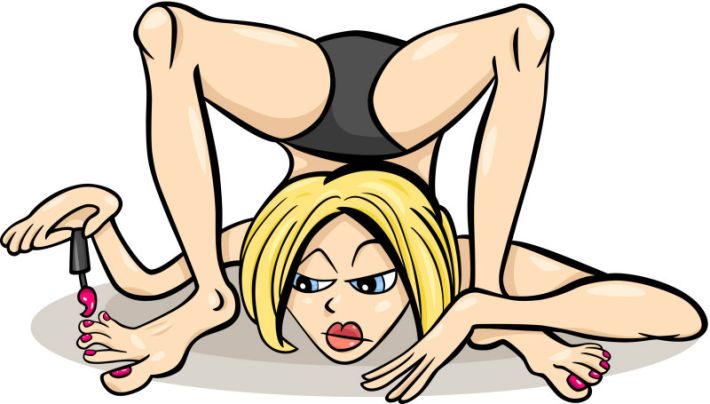
1. Practice yoga.
Yoga is a great way to relax and de-stress. It combines breathing techniques with stretching and poses designed to improve strength, flexibility, balance, concentration, and focus. Yoga can help you cope with stress and anxiety because it teaches you to control your thoughts and emotions.
2. Breathe
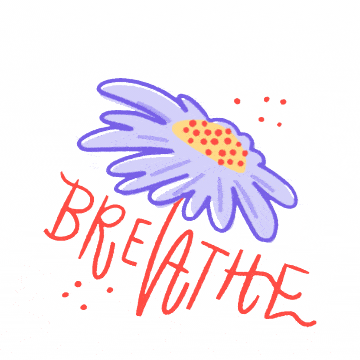
Deep breaths calm us down and make us feel better overall. When you’re feeling anxious, take a moment to breathe deeply through your nose.
Inhaling slowly through your mouth will put you into a state of hyperventilation.
In this unhealthy condition, your body tries to eliminate carbon dioxide too quickly, thus producing excess lactic acid. Although you may find yourself short of oxygen, your heart rate slows, and you’ll start to feel calmer.
3. Meditate.
Meditation is another excellent tool for dealing with stress and anxiety. Meditation involves focusing on your breath and clearing your mind of distractions, and it allows you to clear your head and gain perspective on life situations.
4. Eat a balanced diet.
Science is increasingly showing that a healthy gut is a healthy brain. A balanced diet includes plenty of fruits, vegetables, whole grains, lean meats, fish, nuts, seeds, beans, and dairy products. These brain foods provide vitamins, minerals, fibre, protein, and antioxidants which promote good physical and mental health.
Establish a routine that allows you to keep regular meal times, as this helps to prevent blood sugar dips and spikes, which may exacerbate anxiety.
5. Take care of your skin.
Your skin reflects what’s going on inside your body. A healthy lifestyle promotes glowing, radiant skin. Maintaining a clean, healthy environment is essential for maintaining a healthy body. Self-care, and respect yourself, is an important part of mental health and a healthy lifestyle.
6. Exercise regularly.
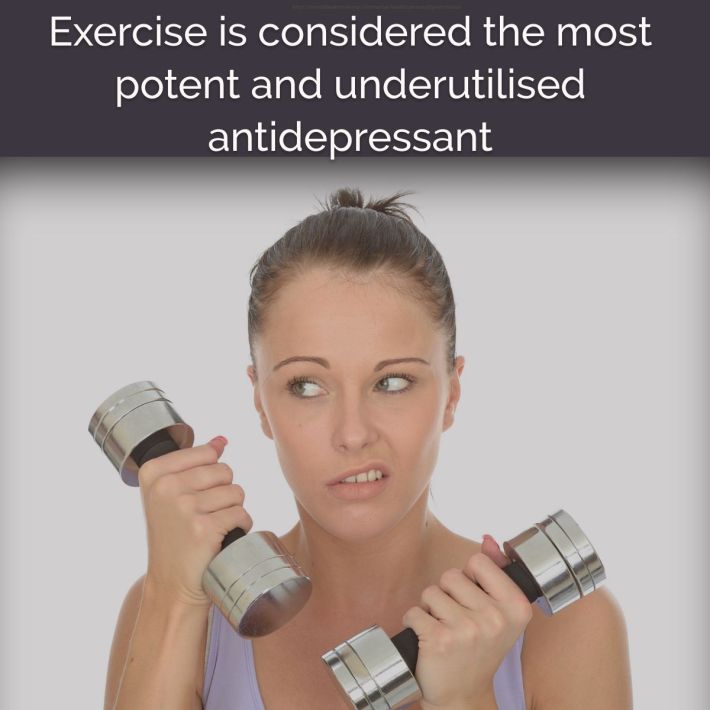
Reference: Harvard.edu
Exercise has proven benefits for both mental and physical health. Regular exercise helps reduce stress levels and moods, increasing energy levels and reducing feelings of depression and fatigue.
Exercise releases endorphins, amongst other things and researchers, presumed that endorphins caused the alleged “runner’s high,” a feeling of euphoria that occurs after lengthy, aerobic exercise.
Sometimes it’s not just what exercise gives you. It’s also what it takes away. It takes away time in front of the telly or the computer. Not only that, but it takes away boredom and anxiety, and it gives you less time to ruminate.
7. Manage anger.
Anger is an emotion that often accompanies stress and anxiety. When you’re angry, you lose self-control and make rash decisions. Managing your anger effectively will help you avoid negative consequences and maintain a positive attitude.
8. Get enough sleep.
Sleep is vital to our emotional well-being, and sleep deprivation causes stress and anxiety. Getting adequate rest at night helps you feel more relaxed and ready to tackle the challenges of everyday life.
9. Talk to someone.
Talking to someone you trust about your problems can help you deal with stress and anxiety. If you need help coping with these issues, speak to a friend, family member, counsellor, doctor, or therapist.
10. Stay hydrated.
Drinking water keeps your body hydrated and helps flush toxins out of your system. Dehydration leads to headaches, constipation, and poor concentration.
Finally, Don't Panic
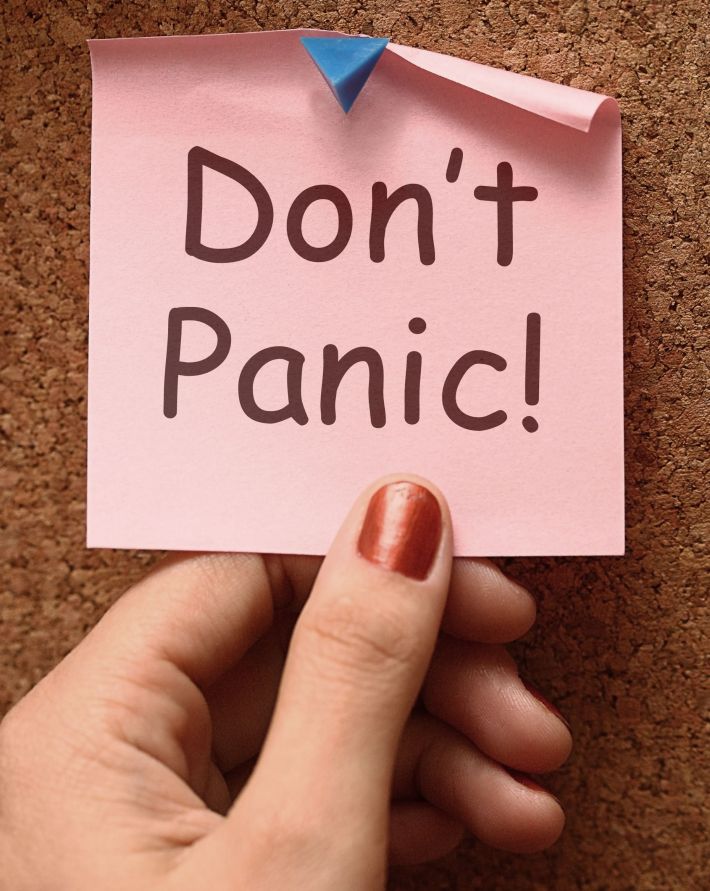
Stress, anxiety, and panic attacks are normal human emotions we all face. The difference between those who struggle with them and those who do not is that one group learns to live with their feelings, while the other does not.
Anxiety and panic attacks are common problems for people with anxiety disorders. They can be triggered by many things, including stress, worry about the future or past, fear of failure, or even just being in an unfamiliar place.
If you have been diagnosed with an anxiety disorder, you must understand that your symptoms may not go away overnight. It takes time to learn how to manage your anxiety effectively, so you don’t experience negative consequences.
There’s no quick fix for anxiety, and it may often feel like an uphill struggle. But by gaining awareness of what causes your symptoms, and getting help from your doctor, you can decrease them.
You may find some of these hacks work for you straight away and others may have no effect at all, but the important thing is to keep trying.



